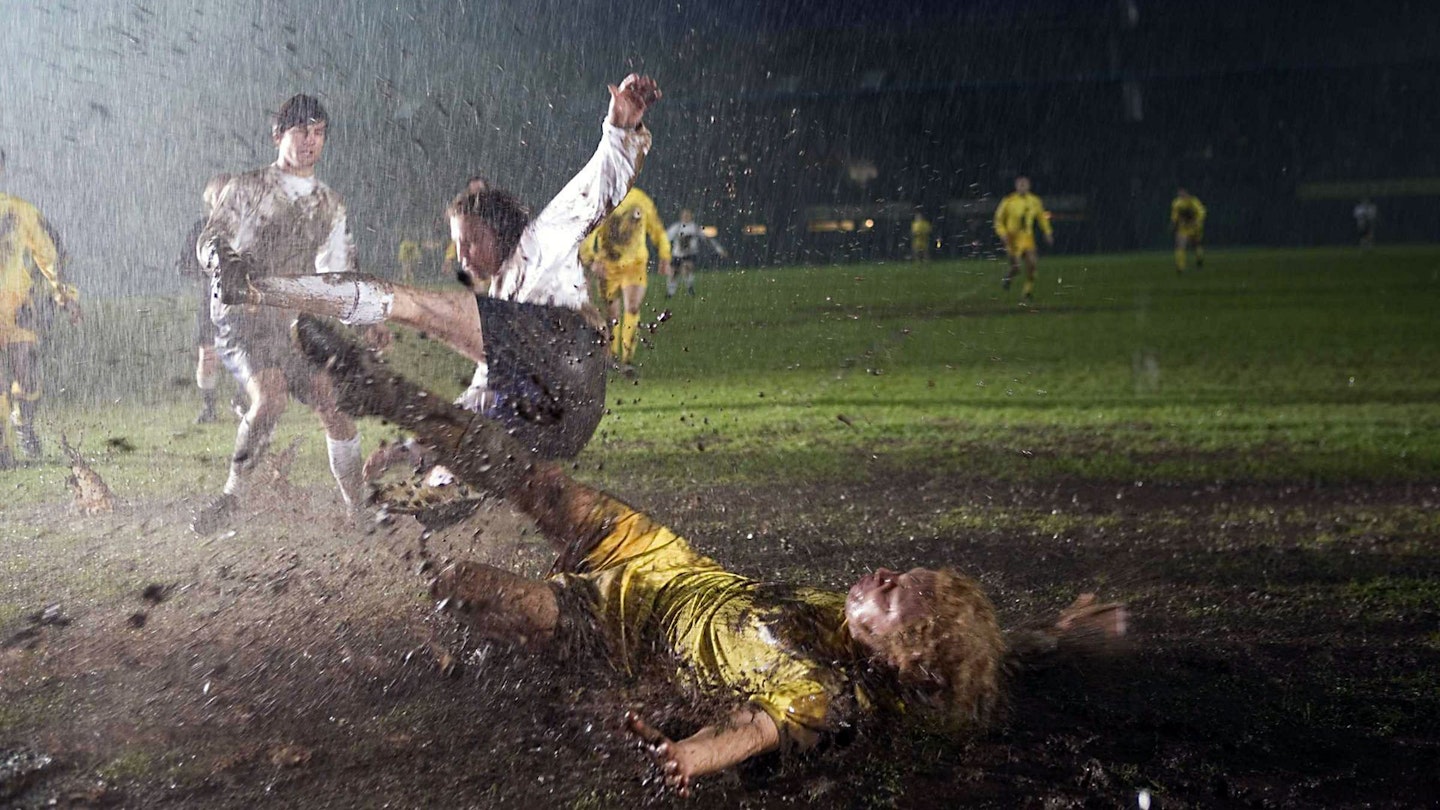In turning David Peace’s lyrical portrayal of Brian Clough into a movie, potential filmmakers faced an uphill challenge. The novel runs on less a plot than a stream of interior monologues irretrievable to film. It involves football, a sport that defeats a cinematic treatment — that swift, Brownian motion transformed into Keystone Cop capering as soon as a camera rolls. It is set among the rusting stands and squalid backstreets of early ’70s grounds. And, most of all, there is the enormity of Cloughie himself, that ocean of contradictions. A master tactician with no tact, a massive personality beset by insecurity: he became a warped icon embodying all the richness, wit and egomania of the British game. Who would dare go near a force of nature like that?
Simple answer: Michael Sheen, that’s who, an actor who thrives when deciphering the riddles of the British psyche. Utilising his gift for both uncannily mimicking his target and weighing up their humanity, he never lets Clough feel absurd. The slicked quiff, jabbing finger and pursed lips, as if sucking on an ineffectual gobstopper, are all present, but here are reflective moments, a sense of the suffering behind that rarely stopped gob. After Williams (comedian), Frost (TV presenter), Blair (prime minister) and now Clough (football manager), where next for the superlative actor? Gordon Ramsay? P. G. Woodhouse? Isambard Kingdom Brunel?
Screenwriter Peter Morgan is another with a gift for articulating peculiarly British foibles, but in contrast to the aristocratic gamesmanship of The Queen, he hones in on the brash, working- class male bravado that littered the sport in the ’70s; a realm whose heroes would depart the arena, light up an Embassy Gold and head for the nearest boozer. Colm Meaney is especially good as smug, devilish Leeds supremo Don Revie — Clough’s great nemesis. Morgan traces the source of their rivalry down to a muddy defeat for Derby against Revie’s tetchy, dirty Leeds, after which Revie neglected to shake his hand. Clough’s mountainous pride saw them as grand cheats only he could reform.
The adaptation had been Stephen Frears’ brainchild, but he went in search of softer stories, leaving it to Tom Hooper, fresh from his splendid HBO mini-series John Adams, to recreate a ’70s Britain of terraced housing, ailing factories and the local climate of Mordor. Hooper has his own gift for the visceral grot of bygone times.
Sensibly, he chooses to minimise any actual on-screen football. One skilful scene has Clough remain in his office unable to watch as his Derby take on Leeds again, only the muffled roar of the home crowd signalling the score. There is a lovely sense of the emotional toil of football, its arcane practices, without needing to swan about on muddy pitches.
Even so, the film struggles to find its stride — more a collection of sharply observed scenes than a comfortable whole. It takes the writer-director team too long to decide their story is less that of Clough’s ill-judged tenure at Leeds — which left them languishing in the lower reaches of the first division amid suggestions of player sabotage — than a ‘love story’ between the ribald manager and his sturdy number two, Peter Taylor (Timothy Spall). Taylor was the key to Clough’s success, he made him tick, but, smelling trouble, refused to join him at Leeds. It was this break-up, the script surmises, that was Clough’s undoing.
Like The Queen, it is a film that resists easy definition, never fully a comedy, a drama, or a biopic. But there is something here that rings true — its compassionate grasp of the near-religious fervour still granted football in this country. It just matters. Of that, Clough would have approved.


